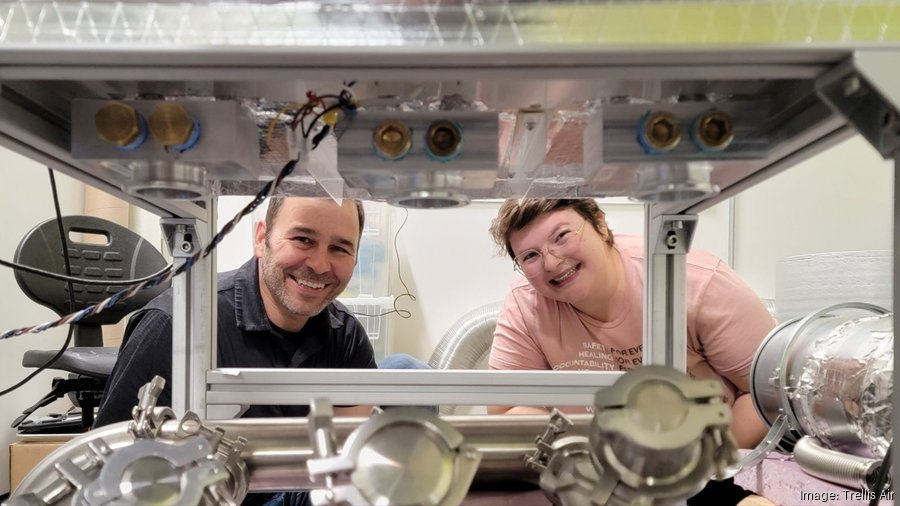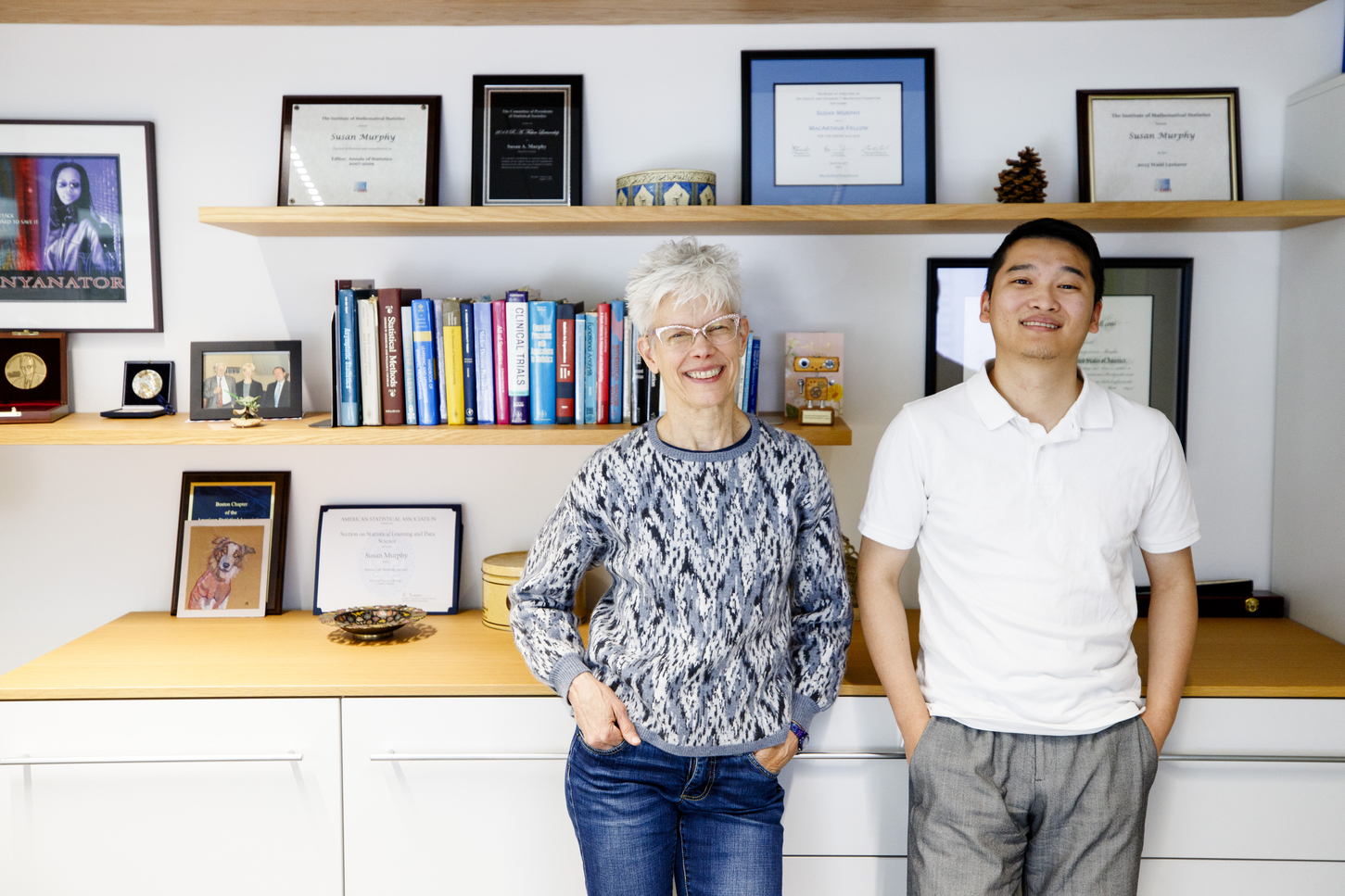The recent Harvard research funding freeze has sent shockwaves through the academic community, leaving researchers scrambling to navigate the repercussions. This abrupt halt, issued shortly after Harvard rejected demands from the Trump administration, targets key projects at the Wyss Institute, particularly those innovative organ-on-a-chip technologies led by Don Ingber. With more than $19 million in contracts at stake, the freeze affects not only significant scientific advancements but also the employment and morale of countless talented researchers. As Harvard faces a legal battle to restore its funding, the implications of this freeze echo throughout the landscape of scientific research funding across the nation. The situation raises urgent questions about the future of Harvard’s commitment to fostering innovation and creativity within the domain of academia.
In light of recent developments, the halt on funding for research at Harvard University has sparked widespread concern among scientists and scholars alike. This interruption comes as a direct response to the institution’s stance against the directives of the former administration, effectively freezing support for critical projects tied to groundbreaking research endeavors. The controversy surrounding funding has implications not just for the Wyss Institute and its cutting-edge organ-on-a-chip research, but also for the wider scientific ecosystem that thrives on collaborative efforts between governmental bodies and academic institutions. As scholars grapple with the immediate impact on their projects and careers, conversations about the significance of sustained financial support for scientific inquiry and innovation have taken center stage. With so much at stake, the need for clarity and resolution becomes ever more pressing for the researchers dedicated to advancing knowledge and technology.
Impact of the Harvard Research Funding Freeze
The recent decision to halt research funding at Harvard has far-reaching implications, particularly for projects led by key figures like Don Ingber at the Wyss Institute. With the Trump administration’s abrupt funding freeze of approximately $2.2 billion, researchers are now faced with a precarious situation where ongoing studies, crucial for scientific advancement, have been forced to a standstill. This freeze not only affects the current projects but also undermines the motivation and stability of talented researchers who drive innovation. Field research and experiments that could lead to significant breakthroughs, such as the organ-on-a-chip technology, face considerable risk as promising funding disappears.
Ingber emphasizes that this funding interruption does not only threaten ongoing work but also the integrity of the scientific research ecosystem cultivated over decades. The immediate effect of this funding freeze is felt by students and postdoctoral fellows who rely on mentorship and resources associated with these high-stakes projects. With uncertainty looming, the potential for setbacks becomes a powerful deterrent for attracting new talent. Academic institutions have historically been at the forefront of innovation, and without stable funding streams and support from government bodies, this landscape could drastically change.
The Wyss Institute’s Role in Innovation
The Wyss Institute, founded under the guidance of Don Ingber, embodies the innovative spirit that has propelled American scientific research into a new era. Its groundbreaking work in organ-on-a-chip technology is a prime example of how interdisciplinary collaboration can lead to revolutionary advancements. This technology not only paves the way for human health research but also holds potential for applications in drug discovery and safety testing, making it a crucial area of focus given current health crises. As the demand for innovative solutions increases, the support from governmental funding becomes essential to sustain these cutting-edge research initiatives.
The issues arising from the funding freeze threaten to curtail the progress made by the Wyss Institute. Ingber’s team has been instrumental in linking engineering with biology to solve complex medical challenges, but without appropriate financial backing, the future of such projects hangs in the balance. The institute exemplifies how establishing a conducive environment for research can lead to significant technological advancements, all while fostering a collaborative spirit within the academic community. As these efforts face funding hurdles, the importance of stable, long-term support from federal agencies becomes increasingly clear.
Navigating the Challenges of Federal Funding Cuts
In the wake of the Trump administration’s freeze on research funding, many leaders in academia, including Don Ingber, are facing the daunting task of navigating a shifting landscape fraught with uncertainty. With vital projects at risk, the need for immediate strategies to adapt to these challenges is critical. Institutions like Harvard have begun filing lawsuits to restore funding, reflecting the deep commitment to protect ongoing research that is foundational to scientific progress and innovation. As funding sources dwindle, the importance of quickly mobilizing alternative resources and support structures cannot be understated.
The delicate decisions surrounding federal funding cuts have ramifications that extend beyond financial considerations, affecting workforce stability and the recruitment of global talent. Ingber’s insights reveal a growing concern that the erosion of trust in the U.S. as a leader in scientific research may result in a brain drain, whereby talented scientists seek opportunities abroad. This downward spiral could diminish the United States’ long-standing position as a magnet for the brightest minds, ultimately stunting future technological advancements that hinge upon collaborative efforts and robust research funding.
The Future of Organ-on-a-Chip Research
Organ-on-a-chip technology represents revolutionary potential in multiple sectors, from drug testing to disease modeling. Ingber’s pioneering work in this domain highlights how simulated human systems can provide unprecedented insights into biological processes. However, the recent funding freeze poses existential threats to the continued exploration and expansion of this technology. Researchers under the strains of halted projects must desperately seek means to maintain momentum, which will involve leveraging internal resources and potentially seeking collaborations that can safeguard the viability of ongoing research.
As there is a growing emphasis on pushing boundaries in scientific exploration, the freeze has brought to light the consequences of unexpected governmental interventions on critical research initiatives. The implications of research into human organ modeling are vast and urgent, especially in the context of current global health emergencies. Ingber believes that timely breakthroughs spearheaded by organ-on-a-chip technology can lead to new therapeutic strategies that improve human health outcomes, which now hinge on navigating the uncertainties created by funding constraints. The future success of this research lies in the collective efforts to advocate for sustained investment and support.
Repercussions for Emerging Scientists and Researchers
The uncertainty surrounding Harvard’s research funding freeze disproportionately affects emerging scientists and researchers who are at a pivotal stage in their careers. As Ingber noted, some are contemplating leaving to pursue opportunities in safer environments, effectively erasing years of investment in training and fostering talent. This exodus could result in a significant loss of knowledge and innovation potential, reinforcing the need for a supportive ecosystem that attracts and retains scientific expertise. The implications of a destabilizing research environment resonate deeply within academic institutions as they mark a shift from an era of growth to one of apprehension.
Counteracting the potential decline in new talent, it’s crucial for academic institutions to create strategies that reassure current and prospective researchers of stable opportunities. Ingber’s commitment to protecting his team showcases the ethical responsibility leaders have in fostering an environment where innovation can thrive. Enabling partnerships, providing transparent communication, and engaging in dialogue about funding circumstances are essential steps to mitigate the fallout from these cuts. Ensuring that researchers feel secure in their positions is vital for maintaining the creativity and innovation necessary for meaningful scientific breakthroughs.
Long-term Implications of the Funding Freeze
The funding freeze imposed by the Trump administration might prove to be more than a temporary setback; it could signal a shift in how scientific research is valued in the U.S. Ingber’s focus on innovation at the Wyss Institute highlights how crucial consistent support is to advancing technology that not only benefits immediate stakeholders but society as a whole. Emerging fields, such as those leveraging organ-on-a-chip technology, need a stable foundation to mature and evolve in order to address pressing issues like preventive medicine and environmental health.
Long-term implications of this funding freeze could deter investment in public health initiatives and technology research, forcing scientific minds to rethink the sustainability of their efforts within the U.S. As global competition intensifies, it’s paramount for American institutions to secure funding and bolster collaboration with government agencies to maintain the innovation engine that has historically driven scientific exploration in the country. Ensuring a favorable environment for research is not merely an academic concern; it directly impacts the country’s capacity to innovate and progress in crucial fields that affect the quality of life for its citizens.
Collaborative Approaches to Research Funding
In the face of funding challenges, collaboration between academia and government presents a unique avenue for securing necessary resources for innovative research initiatives. The situation at the Wyss Institute illustrates how these partnerships can both inspire groundbreaking science and create shared goals that benefit society’s needs. As Don Ingber notes, fostering a collaborative spirit can mitigate the shocks caused by abrupt funding cuts while presenting a united front to potential investors and government bodies to support research that aligns with public interests.
Collaboration amongst research institutions, government entities, and private sectors can also help cultivate new funding streams that align with the evolving demands of scientific inquiry. Establishing networks that connect university researchers with industry stakeholders can lead to mutually beneficial partnerships, reducing competitive barriers and fostering a thriving ecosystem for innovation. The ongoing dialogue about the necessity of scientific funding will surely evolve towards emphasizing the interconnectedness of various research practices, putting collaborative strategies front and center in efforts to secure sustainable financial backing.
Responses to Funding Crisis in Academia
The funding crisis faced by Harvard and other academic institutions poses serious ethical and logistical challenges for researchers who are committed to pushing the frontiers of human knowledge. Ingber’s response to the crisis provides a blueprint for how academic leaders can navigate these turbulent waters while prioritizing their teams’ welfare and the integrity of their projects. His focus on retaining talent even in the face of uncertainty underlines the dual responsibility academic leaders face: ensuring both innovation continuity and employee security.
In order to weather the storm created by funding restrictions, institutions are increasingly looking to diversify their funding sources by forming alliances with the private sector, advocating for increased federal investment, and fostering philanthropy. Engaging with the broader public to raise awareness of the importance of scientific research and its impacts on society can bolster support for renewed funding initiatives. Ultimately, the academic community must mobilize to advocate for policies that protect and prioritize sustainable funding structures essential for fostering an environment of innovation and exploration.
The Role of Innovation in Economic Growth
The tumultuous climate surrounding research funding has significant implications for America’s economy, particularly as it relates to innovation. As Ingber aptly stated, the last fifty years of economic growth have been fueled by a robust partnership between government and academia; sudden funding freezes threaten to fracture this relationship. By investing in scientific research, the government fosters technological advancements, encourages new industry growth, and cultivates a thriving workforce — all of which are vital for a dynamic economy.
As the nation grapples with political shifts and economic uncertainties, reaffirming the connection between innovation and economic health becomes paramount. Ingber’s research at the Wyss Institute epitomizes the type of groundbreaking work that can propel the economy forward. By maintaining an unwavering commitment to academic excellence and collaborating across sectors, America can continue to foster an environment that encourages innovation and drives economic development. Recognizing the importance of sustainable research funding is critical in ensuring that the future remains bright for American ingenuity.
Frequently Asked Questions
What is the Harvard research funding freeze and its implications for academic research?
The Harvard research funding freeze refers to the sudden halt of approximately $2.2 billion in research funding directed towards Harvard University, particularly impacting projects like those at the Wyss Institute. This freeze was a consequence of the Trump administration’s demands for changes in academic governance and practices, leading to serious disruptions in scientific research activities.
How did the Trump administration influence the Harvard research funding freeze?
The Trump administration directly influenced the Harvard research funding freeze by imposing demands for governance changes, hiring practices, and audits, which Harvard rejected. This led to a significant stop-work order that froze crucial research funding, such as that for organ-on-a-chip technology at the Wyss Institute.
What are organ-on-a-chip projects at the Wyss Institute impacted by the funding freeze?
The organ-on-a-chip projects at the Wyss Institute involved innovative research to model human organ responses to various stimuli, such as radiation exposure. However, following the Harvard research funding freeze, key projects led by Don Ingber were abruptly halted, jeopardizing critical scientific advancements.
What are the effects of the funding freeze on researchers and students at Harvard?
The Harvard research funding freeze has created a state of uncertainty for researchers, students, and postdoctoral fellows. Many are facing potential layoffs and disrupted projects, as funding cuts hinder ongoing research activities, especially for those involved in groundbreaking projects using organ-on-a-chip technology.
What action did Harvard take in response to the funding freeze?
In response to the funding freeze, Harvard University filed a lawsuit against the federal government, arguing that the demands leading to the funding halt were unconstitutional. The university seeks to restore funding for crucial research projects, including those at the Wyss Institute.
How important is the research conducted at the Wyss Institute in light of the funding freeze?
The research at the Wyss Institute is critically important, particularly its organ-on-a-chip technologies that model human organ responses to radiation and other stressors. This research is not only vital for scientific advancement but also for addressing broader health and safety concerns, such as those related to nuclear power and space exploration.
What role does academic research play in America’s innovation economy?
Academic research plays a foundational role in America’s innovation economy, fostering scientific advancements that underpin technological progress. The disruptions caused by the Harvard research funding freeze threaten this ecosystem, potentially stalling decades of progress driven by partnerships between government and academia.
What are the potential long-term consequences of the Harvard research funding freeze?
The long-term consequences of the Harvard research funding freeze could include a talent drain from U.S. institutions, decreased innovation, and setbacks in scientific research crucial to health, technology, and economic development. Such restrictions can discourage international talent from joining U.S. academic institutions, undermining the country’s research capabilities.
| Key Aspect | Details |
|---|---|
| Stop-work Order | Issued after Harvard rejected administration demands, affecting ongoing research projects. |
| Immediate Impact | Research on two major organ-on-a-chip projects halted, causing uncertainty for researchers and students. |
| Legal Action | Harvard filed a lawsuit against the funding freeze, highlighting its illegality and seeking restoration. |
| Affected Research | Projects focus on organ damage analysis and microgravity impacts on astronauts, essential for public safety and space exploration. |
| Retention Efforts | Ingber prioritizes staff retention by seeking internal funding and reallocating researchers to other projects. |
| Talent Migration | Concerns about job safety in the U.S. lead to potential talent loss as international researchers reconsider job offers. |
| Impact on Innovation | The funding freeze threatens America’s long-standing innovation engine reliant on government and academic collaboration. |
Summary
The Harvard research funding freeze has created significant upheaval within the academic community, directly impacting ongoing projects and the researchers behind them. As Harvard’s leadership navigates this complex crisis through legal action seeking restored funding, its implications threaten to undermine the innovative landscape that has historically fueled technological advancement in America. The situation highlights the precarious balance between academic freedom and governmental control, with potential long-term repercussions for the future of scientific research and talent retention in the United States.









